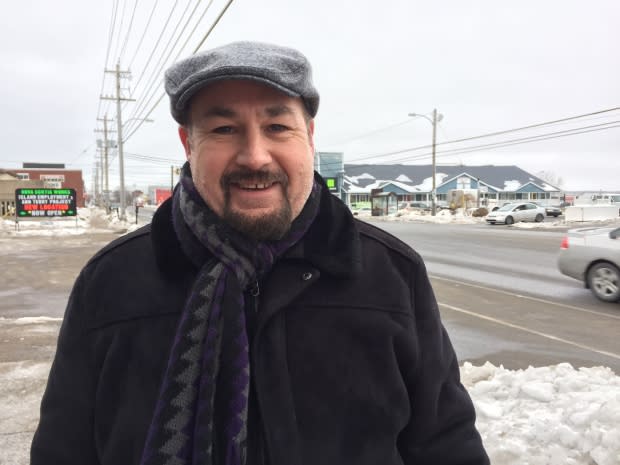Cape Breton councillors unanimously support new group home location
Councillors in Cape Breton Regional Municipality have unanimously backed the location for a new group home for people with mental illness.
The proposal met with opposition from some neighbours around Birch Street in Sydney, but councillors said stigma and fear of mental illness are not reasons to reject the housing plan.
Two council members cited personal experience with mental illness in supporting the new group home.
"I have one of these homes in my very own neighbourhood," said Coun. Eldon MacDonald.
"There's been absolutely no issues to my knowledge in my neighbourhood. It warms my heart when I see the staff going through with them in the summertime, when they're going on their walks with them."

MacDonald said it gets even more personal for him.
"I'm the legal guardian of my sister, who lives in a small options home in Glace Bay. She's been there for 20-some years. There's been absolutely no issues with that facility over that period of time."
Plan is to replace 2 existing homes
Coun. Jim MacLeod, who represents the Birch Street area, said he too understands the need to integrate people with mental illness in the community.
"We can't stigmatize because a person has a challenge," he said. "Same as me. I am a recovering alcoholic and drug abuser. I can't be stigmatized, because I've been down that road. I've walked it."
The Cape Breton Community Housing Association is buying three empty lots on Birch Street from CBRM for a dollar.
The plan is to put up a new home for up to 12 people with mental illness to replace two existing group homes located elsewhere in Sydney.
The existing homes will then be converted into affordable housing to reduce homelessness.
Group homes are a permitted use in the Birch Street zone, but council had to hold a public hearing on Tuesday in order to sell the land below market value.

Up to a dozen area residents attended the council meeting. Several spoke out in opposition to the association's plan.
Debbie Butler, who lives near the Birch Street properties, asked why neighbours were not given any notice of the proposed sale of land.
She said people had a lot of questions, including whether the housing development would bring other property values down.
Concerns from the public
Gus Hayes said the land simply is swampy and unsuitable for building on, and he said there are several backyard motor repair businesses that cause a lot of noise.
Edith Lewis said she was nervous about how the group home residents might act.
"I want to know if people are being supervised there," she said. "I find it hard enough going to bed at night without someone roaming around and making me more nervous.
"If you could give me some guarantee that I'm not going to have to wake up in the middle of the night and see someone standing in my room or something, that's all I want to know."
Fred Deveaux, executive director of the housing association, told the hearing the neighbours have nothing to worry about.
He said the non-profit housing association has run group homes for people with mental illness since 1977 and has never had any trouble.
The association currently operates 11 homes in CBRM and they are staffed around the clock.
"The people who live there — and there have been many over the years — have enjoyed living in their neighbourhoods and have made friends with their neighbours," Deveaux said.
"We don't have issues. We don't have noise complaints. We don't have any issues with criminal activity or disruptions in the neighbourhood."
'People ... deserve to live with dignity and respect'
Deveaux said the group homes have had no negative effect on property values.
"People ... deserve to live with dignity and respect, and to live in a home like all the rest of us do, and to be integrated within our neighbourhoods," he said.
Deveaux said the provincial Department of Community Services provides operating funds for the group homes and has approved extra funds to cover the mortgage needed to build a new home on Birch Street.

